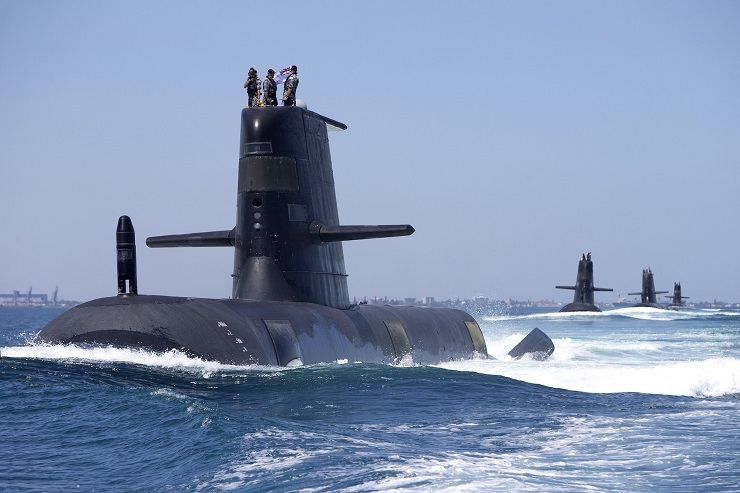In September 2021 it was announced that in the Asia-Pacific and Indo-Pacific regions emerged a new military bloc composed of Australia, the United States and Britain. This event caused a resounding international response, marking a milestone in the ongoing restructuring of international relations. Many analysts saw the new military bloc as a prototype of an Asian NATO directed against China, while others said that the new alliance shows that the “old” NATO is no longer of much concern to the United States and they are shifting their efforts from the Atlantic to the Pacific. This version also looks quite convincing because, as a result, the Australians turned down a multi-billion dollar contract to buy submarines from France, and “following the advice” of the Americans decided to build eight nuclear submarines based on US designs. France’s protests went nowhere and, according to a White House spokesman, the emergence of AUKUS is in the strategic interest of the three countries “to promote peace and stability in the Indo-Pacific region.” It was also stressed that the creation of a new military bloc was not directed against “any particular country.”
It is clear that all these words are void of any significance and only cover up aggressive plans, not only against China, but also against Russia. Incidentally, ASEAN also risks becoming another victim of the new military bloc, which was left out of the decision-making process on the new military alliance, when the member countries of the Association were simply confronted with a fait accompli. Their reactions to the emergence of AUKUS have at times been diametrically opposed, which could pose a real threat to the unity of the bloc.
On the one hand, there is a restrained but clearly negative reaction from Indonesia. “It is of concern that the new cooperation allows Australia to possess submarines as well as Tomahawk missiles,” said Abdul Kadir Jailani, director general for APAC and Africa at the Indonesian Foreign Ministry. He also pointed out that this circumstance fuels the anxiety of neighboring countries, and this, in the end, may increase the risk of an arms race in the region. In his view, AUKUS also ignores the obligations of the respective states (meaning the United States and the United Kingdom) related to the Treaty on the Non-Proliferation of Nuclear Weapons. It is about the existing gaps in the Treaty, which does not stipulate the use of nuclear fuel for military purposes other than weapons themselves, the Indonesian diplomat said. Indonesian Foreign Minister Retno Marsudi has stated that AUKUS could cause IPR tensions, an arms race, and lead to a Cold War.
Vietnam has taken a slightly different stance than Indonesia on the military bloc. For example, Vice President of the Vietnam Diplomatic Academy Nguyen Hong Son noted that the US, Britain, and Australia should have discussed the AUKUS partnership with ASEAN, since the agreement of these three states is relevant to Southeast Asia. “The immediate effect is the sense that the US and even the UK have a long-term commitment in IPR,” he stressed, and also pointed out that “ASEAN on the other hand should ask itself why this agreement arose in relation to ASEAN territory and without the knowledge of ASEAN.” At the same time, the Vietnamese diplomat made a “curtsey” towards the US and admitted that “AUKUS is a tool of the three countries to strengthen their influence in Southeast Asia against the threat of China’s aggressiveness”.
The generally negative attitude of Indonesia and Vietnam toward AUKUS was also supported by Malaysia, whose Prime Minister Ismail Sabri Yaakob voiced his concern that AUKUS might provoke other forces to act more aggressively in the South China Sea. Singapore, on the other hand, believes that the agreement can contribute to peace and stability in the region. The Philippines also believes that this agreement can balance China’s power in the IPR. Philippines Foreign Minister Teodoro Locsin noted that strengthening the capabilities of the closest foreign allies should restore and maintain the balance of power rather than upset it. He welcomed the strengthening of the military power of ASEAN’s close friends and allies to counter threats to the region or attempts to disrupt the status quo.
From all of the above, we can conclude that the emergence of a new military bloc was unexpected for ASEAN. No one there expected the situation in the region to change so quickly. There is still no common ASEAN position on AUKUS, and it is unclear whether such will appear at all. The conclusion to be drawn from all this is that ASEAN unity is becoming increasingly phantom, and that Russia should not expect to be able to rely on the Association in the struggle for peace and stability in the region, despite all the assurances of local leaders.
Dmitry Mosyakov, Professor, Doctor of Historical Sciences, Director of the Centre for Southeast Asia, Australia and Oceania at the Institute of Oriental Studies of the Russian Academy of Sciences, exclusively for the online magazine “New Eastern Outlook”.

